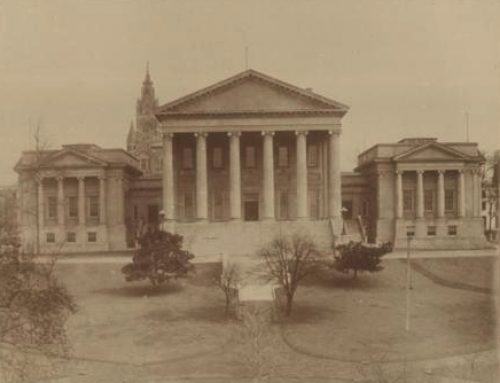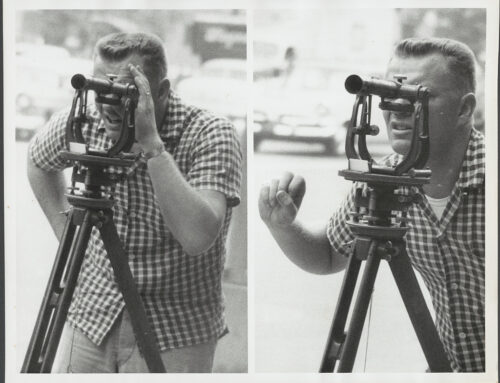Did you know that you can lose your real property if you wait too long to deal with someone else using your property without your permission? Stated differently, did you know that if you have been using someone else’s property for long enough in a particular way, you can gain title to property you do not own? Sound interesting? Welcome to the strange world of adverse possession.
Each state has its own nuances regarding adverse possession, but for this article we’ll be looking at Virginia law. In a subsequent article we’ll follow up about the particulars of adverse possession in North Carolina.
In Virginia, “To establish title to real property by adverse possession, [one] must prove actual, hostile, exclusive, visible, and continuous possession, under a claim of right [or color of title], for the statutory period of (15) years.” Harkleroad v. Linkous, 281 Va. 12, 18 (2011) (quoting Grappo v. Blanks, 256 Va. at 61 (1991)). The claimant has the burden to prove these elements by clear and convincing evidence. Id. at 384 (citing Helms v. Manspile, 277 Va. 1, 7, 671 S.E.2d 127, 130 (2009) (quoting Grappo, 241 Va. at 61, 400 S.E.2d at 170–71)).
The first element, “actual”, requires an adverse possession claimant to establish a physical presence on the owner’s property and use the property as the owner would. See Grappo v. Blanks, 241 Va. 51, 62, 400 S.E.2d 168, 171 (Va. 1991). Importantly, this “actual” requirement is not limited to permanent squatting. Adverse possession cases can arise when neighbors dispute property boundaries or when visitors use a property without permission. Helms v. Manspile, 277 Va. 1, 4, 671 S.E.2d 127, 128 (2009).
Meanwhile, the “visible” element requires the trespass to be “so obvious that the true owner may be presumed to know about it.” Harkleroad, 704 S.E.2d at 383, 281 Va. at 18 (quoting Grappo v. Blanks, 241 Va. 58, 62, 400 S.E.2d 168, 171 (1991)). Whether the original owner actually knew there was a trespass is irrelevant. As stated in Harkleroad, 281 Va. at 19:
[I]nherent in the doctrine of adverse possession is the concept that the law will not permit an owner to be so dilatory as to remain unaware of the exclusive use of his property by a stranger claiming title for the statutory period of time. That ignorance is not a defense to the occupier’s assertion of adverse possession.
Therefore, a trespasser hiding in a secret compartment of a house (while an excellent premise for a horror movie) is not satisfying the “visible” requirement for an adverse possession claim. However, a trespasser parking their car in your driveway every day could well be satisfying the “visible” element even if you did not check on the property.
Notably, the “hostile” element does not require the trespasser to be actively hostile or aggressive. In the adverse possession context in Virginia, hostile really means the claimant infringes on the owner’s rights and use the property without permission. Thus, a trespasser can fulfill the hostile element if they peacefully trespass on the owner’s property without the owner’s permission. However, this means that permission is a defense to adverse possession if the landowner can show that the claimant was using the property with their permission. An individual alleging adverse possession generally cannot fulfill the hostile element if the owner gave them permission to use the property.
By far the most important element of a claim for adverse possession is the necessary time period, in Virginia, 15 years to establish an adverse possession claim. Harkleroad, 704 S.E.2d at 383, 281 Va. at 18. Virginia courts can allow an adverse possession claimant to add their time in possession to those of prior users in order to meet this time period if the current claimant is in privity with the prior users. This is called “tacking.” For instance, if A has use the property for 10 years and then transferred their ownership to B, tacking would only require B to use the property for 5 more years to fulfill the continuous and uninterrupted 15-year requirement. Privity is most commonly established through inheritance or sale.
Lastly, the claimant’s occupation of the property must have been under “claim of right.” In Grappo v. Blanks, 241 Va. 58, 62 (1991), the Supreme Court of Virginia explained the term “claim of right”:
When used in the context of adverse possession, the terms claim of right, claim of title, and claim of ownership are synonymous. They mean a possessor’s intention to appropriate and use the land as his own to the exclusion of all others. That intention need not be expressed but may be implied by a claimant’s conduct. Actual occupation, use, and improvement of the property by the claimant, as if he were in fact the owner, is conduct that can prove a claim of right.
If the claimant can meet all of these elements, then in order to perfect their title to the property they have to bring an adverse possession suit and obtain a court order to that effect.
These claims often come up between neighboring landowners. For example, if a fence crosses a neighbor’s property line and fences off a portion of the neighboring lot for long enough, it may give rise to an adverse possession claim. There are many fact patterns that can give rise to adverse possession claims, and landowners should always be vigilant about their property lines. However, one fact pattern where adverse possession does not arise is that an adverse possession claimant cannot gain title against the state. Title by adverse possession cannot be acquired against the state or its subdivisions. See Bellenot v. Richmond, 108 Va. 314, 319 (Va. 1908).
If adverse possession cannot run against the state can adverse possession run against a railroad? Subscribe for our further articles.
If you enjoyed this article, please feel free to click the subscribe button below if you are not already a subscriber.
This short piece was prepared with the assistance of one of our summer associates, Eddie Lin, who worked with us this summer in our Eminent Domain / Right of Way Practice Group.






Leave A Comment